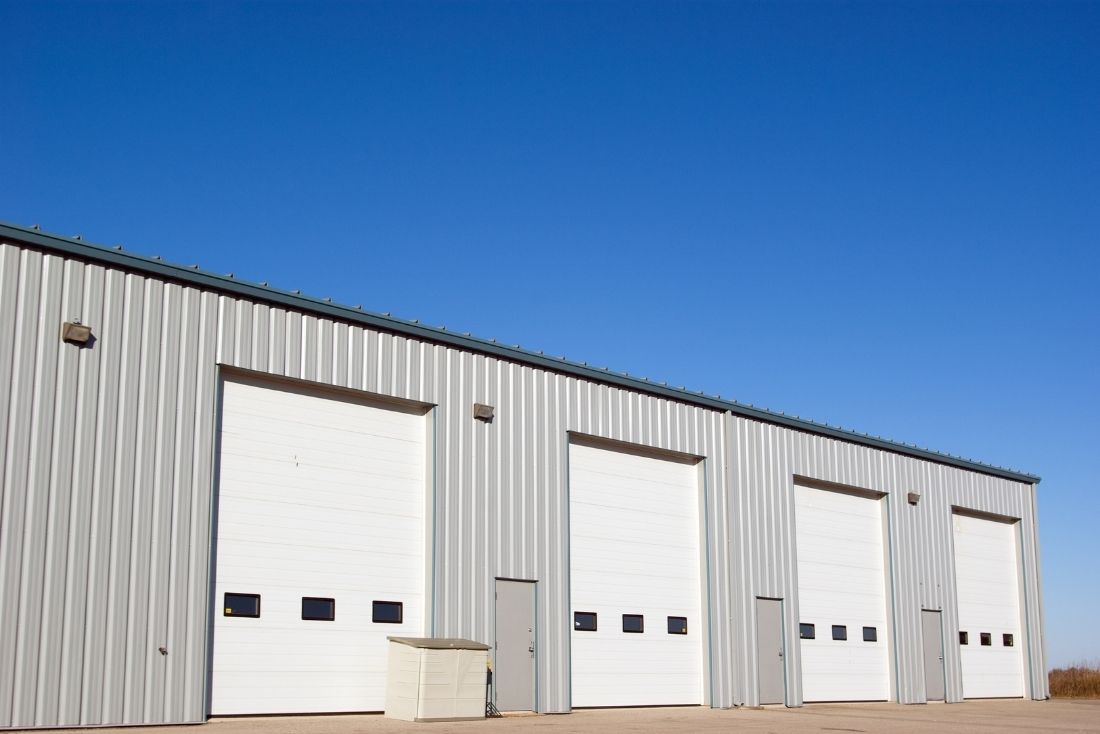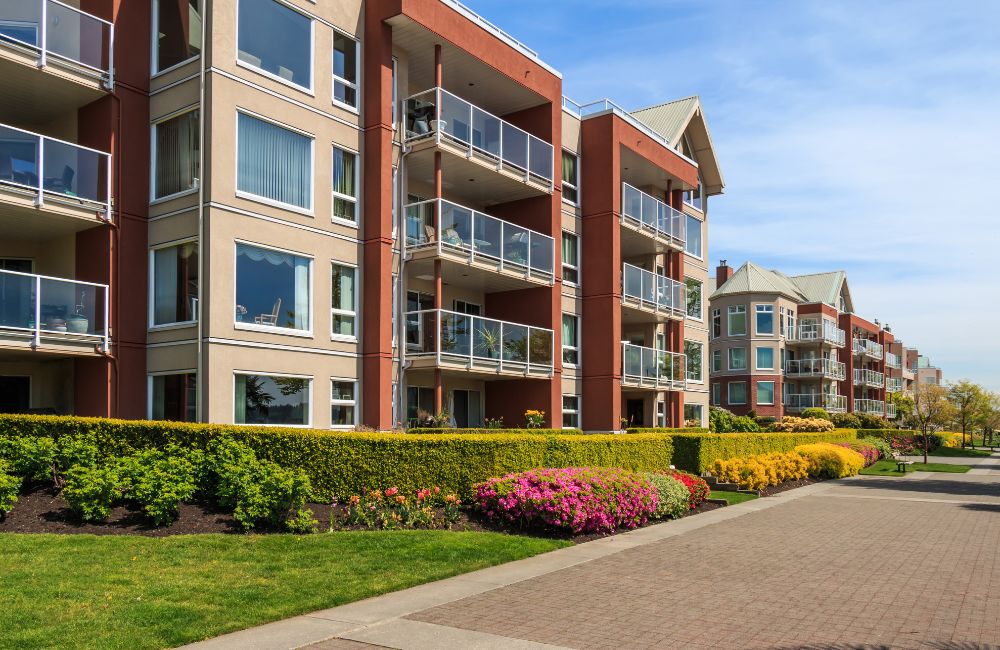SINCE 1988
203-546-7793

Finding the perfect industrial building for your business is pivotal to ensuring operational efficiency and growth. Whether expanding your current operations or starting a new venture, the right industrial space can make all the difference. However, with so many options available, it’s crucial to consider several key features to make an informed decision. Here are seven essential features to remember when searching for industrial buildings for sale.
KEY TAKEAWAYS
|

The old adage “location, location, location” holds true regarding industrial properties. The proximity to major transportation routes such as highways, railways, and ports is vital for efficient logistics and distribution. Additionally, accessibility for employees and customers should be considered. A centrally located facility can reduce commute times for workers and make it easier for clients to reach you.
When evaluating the location, the surrounding infrastructure must also be assessed. Are there amenities nearby, such as restaurants, hotels, and suppliers? Access to these resources can enhance convenience for your employees and streamline your supply chain.
When planning an industrial building, it’s vital to consider its size and layout carefully to meet current needs and future growth plans. Failing to do so can pose significant risks to your business. Inadequate space may lead to cramped work areas, hindered workflow, and difficulties accommodating equipment or inventory. On the other hand, an excessively spacious layout can result in wasted resources and increased operating costs.
To ensure seamless operations, consider the following tips:

Infrastructure and utilities serve as the lifeblood of industrial operations, ensuring seamless workflow and productivity. Businesses can face significant operational challenges and downtime without reliable access to essential utilities such as electricity, water, and telecommunications. For example, a manufacturing facility will require ample electrical capacity to power heavy machinery and equipment.
Consider the following factors:
Zoning laws dictate how a property can be used, ensuring compatibility with surrounding land uses and protecting the community’s health and safety. Non-compliance can lead to costly fines, legal disputes, and operational disruptions. For instance, a property zoned for heavy industrial use may not be suitable for light manufacturing or office space.
Here are additional points to consider when evaluating zoning and regulatory compliance for industrial buildings for sale:
Prioritize industrial buildings for sale with robust security measures like surveillance, access control, and fire suppression systems. Safety features protect your assets and inventory and contribute to a secure working environment for employees. Conduct a thorough inspection of the property to identify potential hazards or deficiencies in safety protocols.
Here are additional security and safety features to consider when evaluating industrial buildings for sale:

Sufficient parking facilities ensure easy access for employees and visitors, while outdoor space may be necessary for loading docks, storage, or future expansion. Inadequate parking can lead to congestion and logistical challenges, affecting productivity. When evaluating industrial buildings for sale, assessing parking and outdoor space is crucial to meet current needs and accommodate future growth.
Here are tips for assessing parking and outdoor space:
Evaluating environmental considerations is crucial to mitigate pollution, contamination, and regulatory compliance risks. Non-compliance with environmental regulations can result in fines, legal liabilities, and reputational damage. Additionally, prioritizing environmental responsibility aligns with sustainable business practices and community expectations.
Here are some additional environmental considerations when evaluating industrial buildings for sale:
Here are six additional tips to enhance your search:
Engage with local business networks, industry associations, and Chamber of Commerce events to connect with property owners and developers offering industrial buildings. Networking within the community can provide valuable insights and access to potential opportunities.
While established industrial zones may be saturated or costly, emerging areas often present competitive prices and growth potential. Stay informed about market trends and seek out emerging industrial areas with the potential for future development and investment.
Think creatively about adaptive reuse projects, such as converting warehouses into office spaces or repurposing manufacturing facilities for mixed-use developments. Assess the feasibility of these projects and explore zoning regulations to uncover unique investment opportunities.
Collaborating with a reputable commercial realtor specializing in industrial properties can streamline your search process and provide access to exclusive listings. Their expertise in negotiating deals, understanding market trends, and conducting due diligence can significantly enhance your chances of finding the perfect industrial building for sale.

Partnering with a seasoned commercial realtor can be the key to unlocking your business’s ideal property. From understanding market trends to negotiating favorable terms, a skilled realtor can streamline purchasing and ensure you secure the perfect industrial space for your operations.
Here are tips to help you find the best commercial realtor for you:
Communicate your specific requirements, such as location preferences, budget constraints, and desired amenities, to potential realtors. A reputable realtor will leverage this information to tailor their search and present you with industrial buildings for sale that align with your goals and priorities.
When evaluating potential commercial realtors, prioritize those with extensive experience in dealing with industrial properties. Look for professionals with in-depth knowledge of the local industrial real estate market, including emerging trends and property values. By selecting a realtor with specialized expertise in industrial buildings for sale, you can leverage their insights to make informed decisions and secure the most advantageous deals.
Before committing to a commercial realtor, take the time to review their track record and client testimonials. Seek references from past clients who have engaged the realtor for similar industrial property transactions. Pay attention to their success rate in negotiating favorable terms, responsiveness to client needs, and ability to deliver results within specified timelines.
Effective communication is essential when collaborating with a commercial realtor to acquire industrial buildings for sale. Prioritize realtors who prioritize clear and transparent communication, keeping you informed at every stage of the purchasing process. Additionally, consider their accessibility and responsiveness to inquiries, ensuring you can reach them promptly to address any concerns or questions that may arise.
Finally, negotiate the terms and fees with your commercial realtor before proceeding with the property search. Clarify their commission structure, ensuring it aligns with industry standards and reflects the level of service provided. By establishing clear expectations upfront regarding fees, timelines, and contractual obligations, you can foster a mutually beneficial partnership and streamline the acquisition of industrial buildings for sale.
Assess the marketing strategies potential commercial realtors employ to promote industrial properties for sale. Look for professionals who utilize diverse marketing channels, including online platforms, networking events, and targeted advertising, to maximize exposure for your property listing. A realtor with a comprehensive marketing plan can attract more qualified buyers and expedite the sale process, ensuring optimal visibility and market penetration for your industrial building.
Ensure that your chosen commercial realtor possesses adequate legal expertise and ensures compliance with all relevant regulations throughout the transaction process. Verify that they are licensed and adhere to ethical standards by industry organizations and regulatory bodies. By partnering with a realtor well-versed in legal nuances and transactional complexities, you can mitigate risks and navigate potential legal challenges associated with acquiring industrial buildings for sale with confidence and peace of mind.
Securing financing for industrial properties involves various options, including traditional bank loans, Small Business Administration (SBA) loans, and commercial mortgages. Private lenders and real estate investment firms may offer alternative financing solutions tailored to industrial property acquisitions. Exploring these options and consulting with financial experts can help you determine the most suitable financing approach for purchasing industrial buildings for sale.
Thorough due diligence is essential before purchasing an industrial building beyond the property inspection. This may include reviewing zoning regulations, assessing environmental risks, and evaluating market trends and investment potential. Engaging with legal advisors, environmental consultants, and real estate professionals can provide valuable insights and ensure informed decision-making when investing in industrial properties for sale.
Negotiating the purchase price for an industrial building involves careful consideration of various factors, including market conditions, property conditions, and seller motivations. Conducting market research, obtaining property appraisals, and leveraging the expertise of real estate agents can help you negotiate a fair purchase price. Additionally, exploring creative negotiation strategies, such as seller financing or leaseback arrangements, may present opportunities to achieve mutually beneficial outcomes when acquiring industrial buildings for sale.
Owning industrial real estate may have various tax implications, including property taxes, depreciation deductions, and capital gains taxes upon sale. Additionally, tax incentives and deductions may be available for certain industrial property investments, such as energy-efficient upgrades or historic rehabilitation projects. Consulting with tax professionals and financial advisors can help you navigate the complex tax landscape and maximize tax benefits associated with owning industrial buildings for sale.
Assessing the potential for rental income from an industrial property involves analyzing market rental rates, vacancy rates, and tenant demand in the area. Conducting a comparative market analysis and evaluating comparable industrial properties can provide insights into prevailing rental rates and market demand. Additionally, considering factors such as property condition, location, and tenant amenities can help estimate potential rental income and inform investment decisions when considering industrial buildings for sale.

Finding the right industrial building for your business is a crucial step towards success. With so many factors to consider, having a knowledgeable and experienced team by your side can make all the difference. Tower Realty Corp in Newtown, CT, is your trusted partner in navigating the industrial real estate market. Our expert team understands the unique needs of businesses looking for industrial buildings for sale and is dedicated to helping you find the perfect fit.
Whether you’re looking for a space that enhances operational efficiency, offers strategic location advantages, or meets specific regulatory and environmental standards, Tower Realty Corp has the expertise to guide you. Don’t leave your business’s future to chance. Contact Tower Realty Corp today and take the first step towards securing the ideal industrial property for your needs!